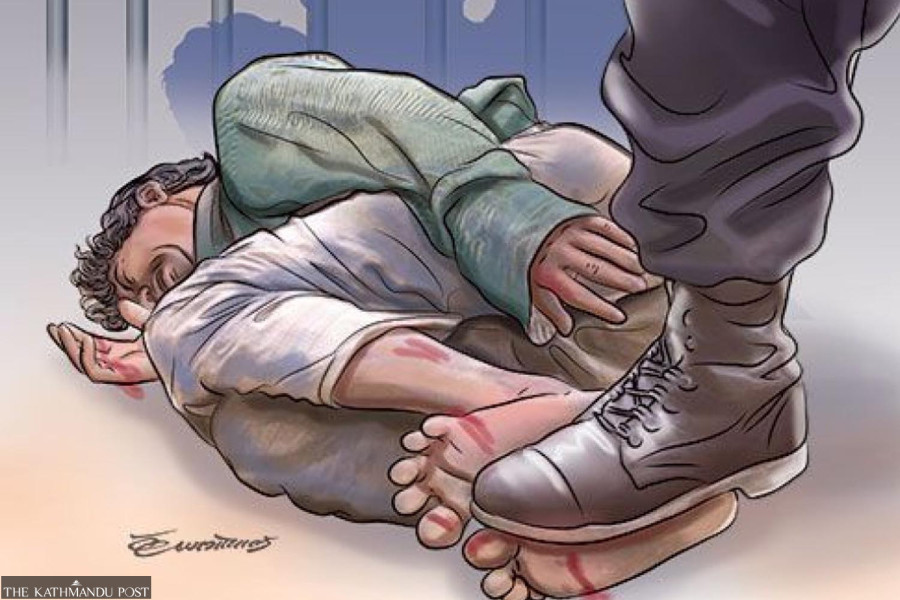Editorial
Make prisons safer
Custodial deaths result from a larger systemic failure in Nepal’s prison system.
Nepal’s criminal justice system is marred by the death and torture of prison inmates while in police custody, as suggested by several studies. A 2022 report by the Advocacy Forum, a non-governmental organisation that advocates for human rights, highlighted 39 custodial deaths since 2018—16 deaths in police custody, one at the hands of an army officer, 21 within prison walls, and one in a juvenile correction centre. Another human rights non-governmental organisation, Informal Sector Service Centre (Insec), and a separate government investigation revealed that two inmates recently died from injuries inflicted by police officers guarding them in Sankhuwasabha Prison.
Unfortunately, these incidents are just the tip of the iceberg, as many deaths occur in police custody and are frequently swept under the rug, labelled as “mysterious” or “suicide”. Worse, people from marginalised communities, such as Dalits and the poor, are likelier to be the victims of such extrajudicial killings. It’s hard to forget the heartbreaking atrocity of Sundar Harijan being imprisoned last year instead of the actual perpetrator and how he allegedly committed “suicide”. It was the torture and confinement for a crime he didn’t commit that led to his death in prison.
Custodial deaths are clearly the result of a larger systemic failure in Nepal’s prison system. Prisons here are notorious for poor management, overcrowding, inhumane living conditions, mistreatment, excessive use of force by police, psychological torture, neglect, as well as government disregard. All of this leads to the tragic death of detainees. According to the Office of the High Commissioner for Human Rights (OHCHR), deaths in custody are “frequently underreported or go unrecognised and unreported”. Data on custodial deaths are unavailable and unreported in Nepal because police departments do not keep records of the crimes happening under their nose to protect their officers, and also because they fear being exposed for their mismanagement.
As custodial deaths have occurred this year, too, the government shouldn’t put off monitoring the activities of police personnel, holding them accountable and sensitising them on the issue any longer. Equally important is ensuring good living conditions and prioritising the mental health and well-being of prison inmates. As suggested by the Advocacy Forum, the government should open the door for ex officio investigations and proper registration of First Information Reports (FIRs). The forum has also found that in many cases, the government has failed to take action against the officers found guilty through the National Human Rights Commission investigation, which is unfortunate for a democratic republic like ours.
If this partisanship towards the guilty isn’t immediately addressed, the vicious cycle of custodial deaths will remain a dark stain on the prison system of the country. Regardless of their legal status, detainees have the right to live with dignity in prisons, and police personnel should be made aware of it. Such deaths not only infringe on their fundamental rights, but also erode the public’s trust in the criminal justice system of the country. When those tasked with upholding the law become violent perpetrators, the foundation of criminal justice is weakened. Our collective responsibility should ensure that no single prisoner dies at the hands of police personnel and is forgotten within the prison walls.




 8.88°C Kathmandu
8.88°C Kathmandu














